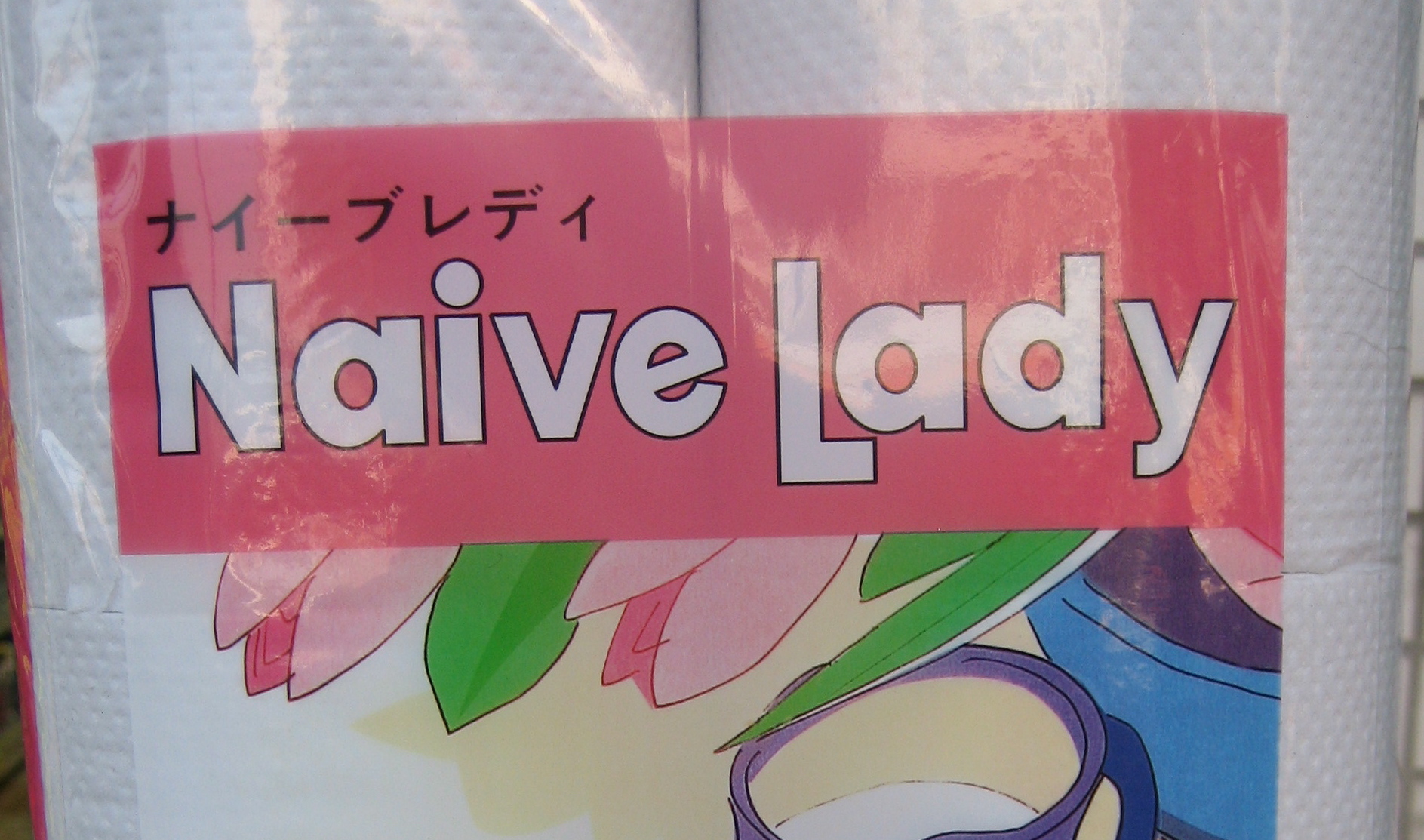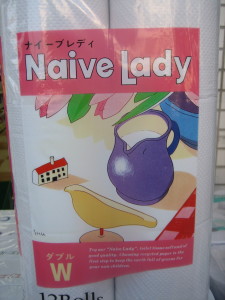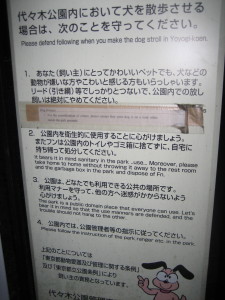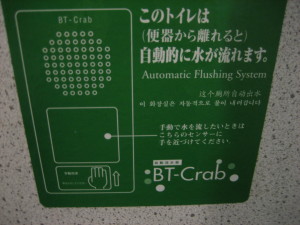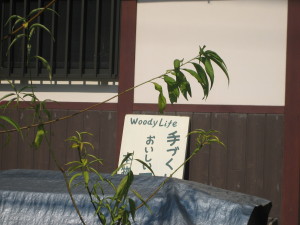you know…
the door of your heart silently closed…
I, looking at you without a breezing sound…
you know…
my endless wait desiring the door of your heart
would open…
Have I decided to start publishing my poetry on this blog? Nope, not quite. I just thought I’d write a post in honor of Japanese English, or Engrish.
The poem above, which I actually really, really love, came from the front of a photo album I purchased in Japan.
English takes on a life of its own in Japan (and of course this phenomenon is not limited to Japan, but this is where the majority of my experience lies, so I’m sticking to Japanese English for this post). If you’ve never seen it, I’d highly recommend checking out the Engrish.com website for a comprehensive guide to worldwide Engrish, as well as The Joys of Engrish book.
Before writing too much more, I want to say that my appreciation of Japanese English is not meant to be derogatory or mean-spirited—I genuinely appreciate some of the unexpected humor and beauty that arises when people write in a language that is not their own.
I wanted to share a few examples of Japanese English that I’ve collected throughout the years.
The text on the packaging reads: “Try our ‘Naive Lady’ toilet tissue soft and of good quality. Choosing recycled paper is the first step to keep the earth full of greens for your own children.”
“Please defend following when you make the dog stroll in Yoyogi-koen.
- Dog owners – for the consideration of others, please ensure that your dog is on a lead while inside the park grounds.
- It bears it in mind sanitary in the park ..use… Moreover, please take home to home without throwing it away to the rest room and the garbage box in the park and dispose of Fn.
- The park is a public domain place that everyone can use. Let’s bear it in mind so that the use manners are defended, and the trouble should not hang to the other.
- Please follow the instruction of the park ranger etc. in the park.”
I believe that Japanese English falls into a few distinct categories, and this is a great example of text that was probably just put into Google translate (or something similar). I love the redundancies “please take home to home” and unusual turns of phrase such as “trouble should not hang to the other.”
Is it just me, or is there something really funny about an automatic toilet flushing system named “BT-Crab”?
I remember speaking with a fellow English teacher during my first year in Japan and he was wondering if there had been one Japanese/English dictionary that had some bad translations in it, which had then doomed the entire population to make the same mistakes.
One example is the widespread use of the term “woody” where “woodsy” would be more appropriate.
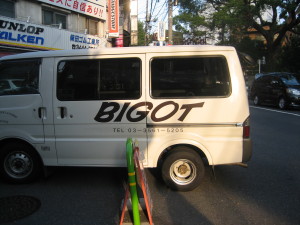 Stay away from the Bigot-mobile!
Stay away from the Bigot-mobile!
“Emargency Exit
If anything should occur,
please destroy the cover doornob and open the door.”
That seems like an awfully severe reaction to anything that should occur! I also wonder how you can open the door after you’ve destroyed the doorknob.
Hmm… for some reason I don’t think I want to pay someone to perform any service provided by a company called “Coopoo”…
First, I have to say that I love the fact that there’s a car called a “Rasheen.”
I’ll end this post with the smaller text on Rasheen’s tire cover:
Listen to the murmuring of a stream.
Run after wild birds. Rest in the bosom of the woods.
Indeed.
